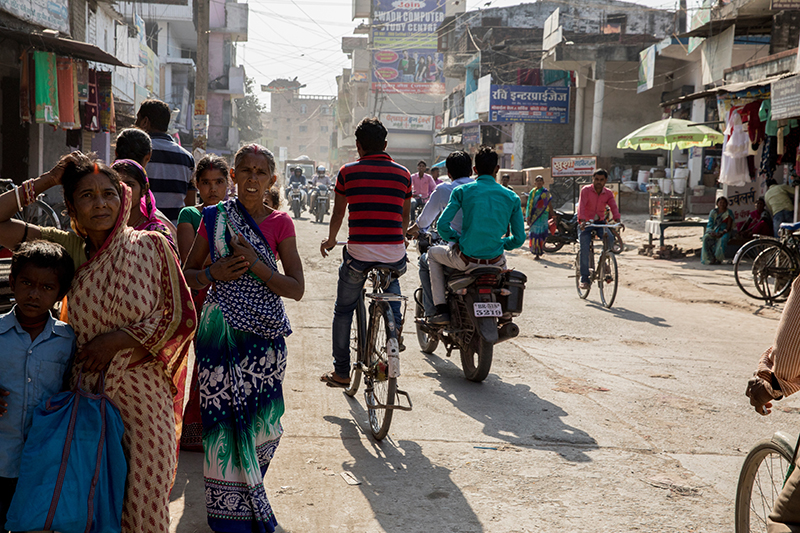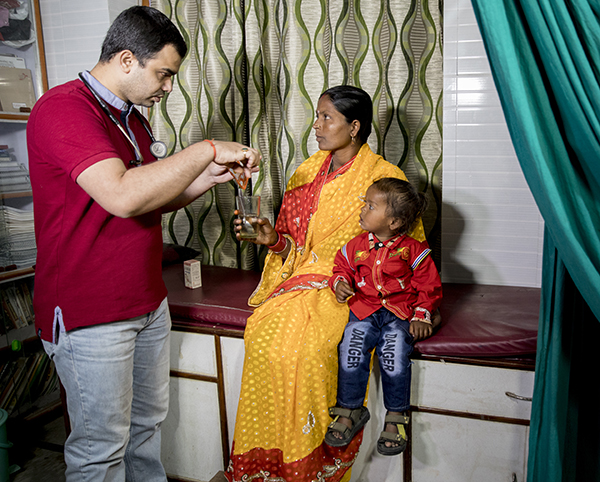Using data for more effective behavior change campaigns

SHOPS Plus used findings from a household survey in urban India to inform its behavior change campaigns in family planning, child health, and tuberculosis. The project teams conducted the survey to gain insight into people’s knowledge, attitudes, and practices. It used the findings to develop key messages and to determine how the messages should be delivered. The campaigns’ strategies involve spreading messages through mass media, digital media, community events, and workplace interventions.
The survey was conducted in the capital cities of six states in India where SHOPS Plus is operating, and its findings are helping the project develop and deliver tailored messaging to target populations in each of the priority health areas. As the India team’s research director Andy Bhanot explains, “Understanding behaviors and underlying motivations of our target audiences in these health areas helps the project team maximize the impact of our campaigns by strategically aligning messages with consumer preferences.”
Family planning for married couples
The survey data among young, low income married couples in urban India show low awareness and use of oral contraceptive pills (OCP) as a method
of family planning. While 43 percent of the women surveyed reported using modern methods of contraception, only three percent of women use OCPs. Of non-users surveyed, almost two-thirds are potential users, since they either are not sure about or do not desire additional children. These women could benefit from increased knowledge about appropriate family planning methods. Responding to the survey findings, which revealed that reasons for non-use are varied, SHOPS Plus is careful to address multiple barriers to the use of short-acting contraceptive methods. A recent television spot breaks down myths and misconceptions about OCPs and also promotes spousal communication in decision-making about contraception.
Diarrhea management messages for child health

SHOPS Plus India also promotes proper management of diarrhea for children under five years old. Data from the household survey reveal that of children who had diarrhea in the last six months, 86 percent of caregivers sought treatment or advice. Approximately half of caregivers who sought care first went to the private sector. Unfortunately, of children given treatment for their diarrhea, only one out of four were given ORS and zinc as the first line treatment. Lack of provider awareness of zinc as a treatment for diarrhea is a major barrier to its use.
SHOPS Plus is working to raise awareness among caregivers and providers, through mass media and in-person events, on the importance of using both ORS and zinc as the first line treatment for diarrhea. The project is also working closely with private sector clinic chains and pharmacies to raise their awareness of this treatment. In one example, the project partnered with ORS manufacturer Dr. Reddy’s to host Facebook Live events that have reached over 700,000 people.
Overcoming stigma related to TB
Another goal of the team in India is to reduce stigma among people living with tuberculosis (TB). While the survey revealed that nearly everyone (92 percent of respondents) knew that TB is transmitted through the air when coughing or sneezing, many also harbored myths and misconceptions, with about half of respondents stating that TB can be spread though sharing of food or utensils. The survey also highlighted the prevalence of stigma and discrimination towards people who have TB, with two out of three respondents reporting that they would not share food or drink with someone who has TB, and more than 20% stating their unwillingness to interact socially with a person with TB.
SHOPS Plus India is working with the Central Tuberculosis Division of the Government of India to run a campaign that addresses stigma and discrimination against people living with TB. The campaign seeks to change norms that lead to stigmatizing behaviors, and to improve awareness on how TB spreads.
Learn more about the study as well as our India and social and behavior change work.